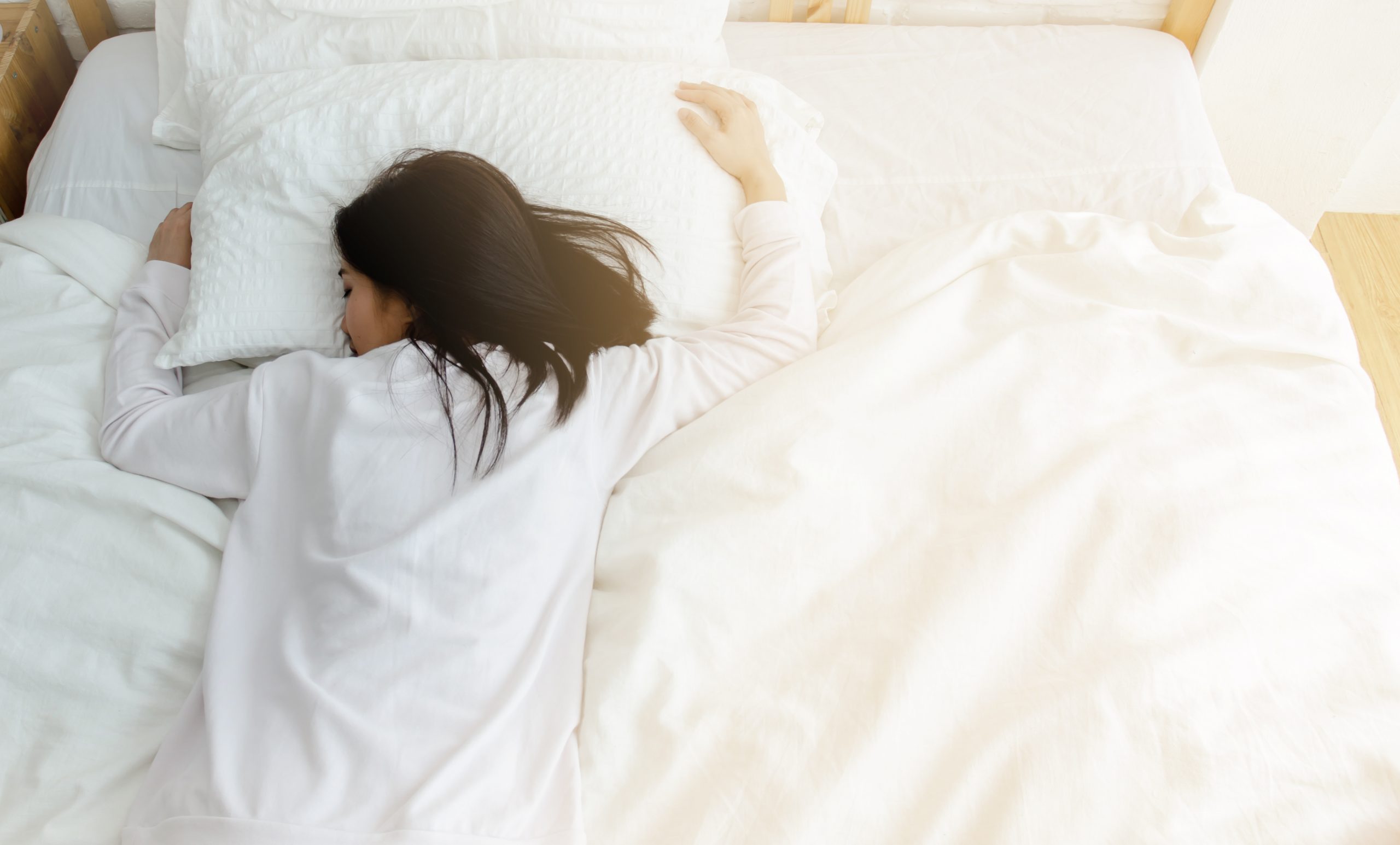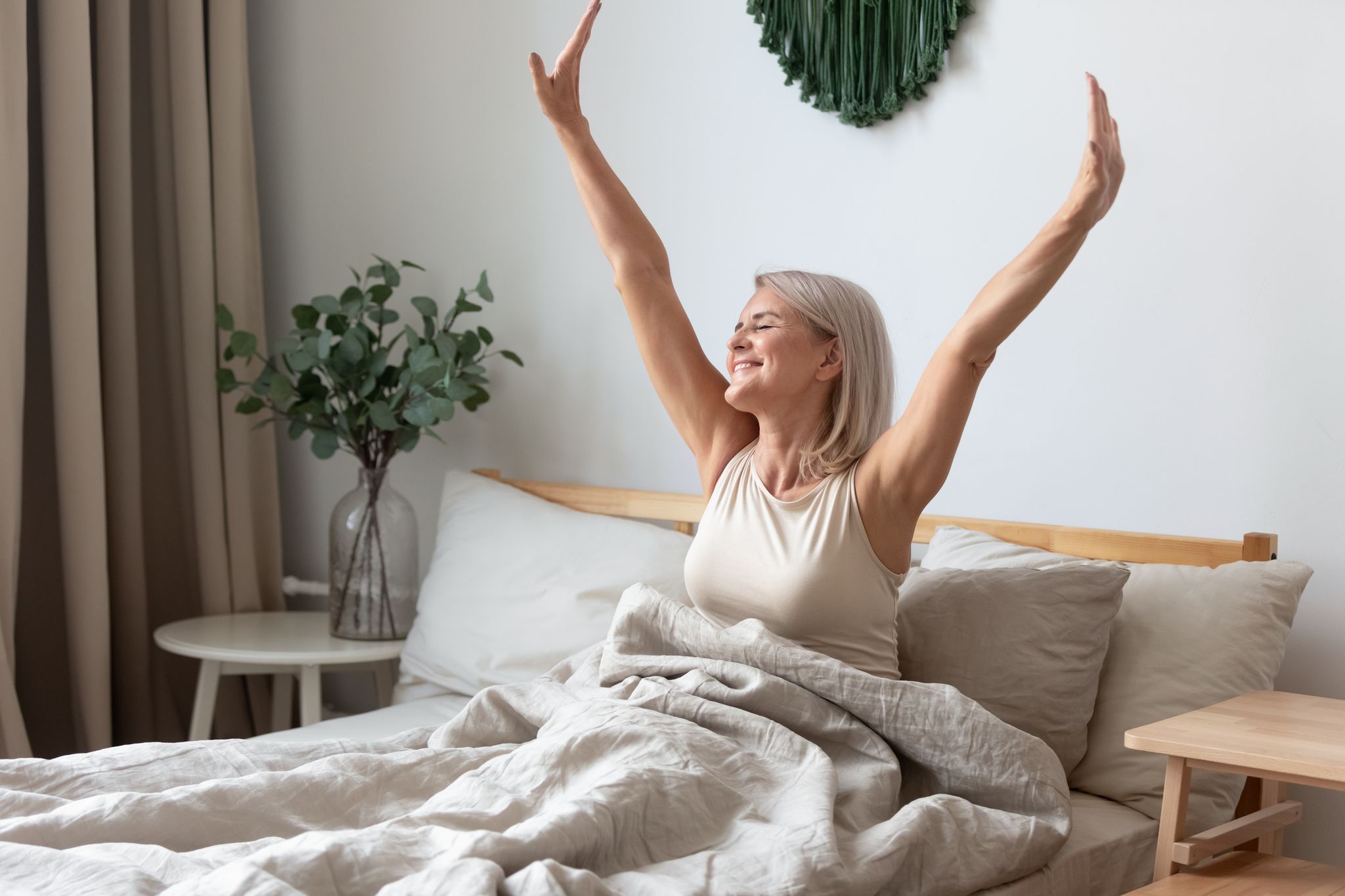Getting a good night’s sleep is as crucial as healthy eating and exercising for your health, writes Aleney de Winter.
My relationship with sleep is one that could only be described as fractured. And by fractured, I mean smashed to pieces, glued back together, dropped from a lofty height, set fire to and buried, before having its grave danced merrily upon. Indeed, if it weren’t for the fact that I tend not to hunger for human flesh and don’t fancy chowing down on brains, my lack of slumber was leaving me resembling an extra from The Walking Dead.
Research has shown that an adult human requires seven or more hours per night. “When duration of sleep drops below seven hours, and especially when it starts to move toward six and half hours or less, a number of different disorders begin to increase in prevalence,” says David F. Dinges, PhD, Professor and Chief of the Division of Sleep and Chronobiology in the Department of Psychiatry at the University of Pennsylvania Perelman School of Medicine.
The detrimental effects of inadequate sleep on health are huge, increasing the risk of diabetes, hypertension, impaired metabolism, high BMI and risk of obesity, heart disease, seizures, high blood pressure, stroke, anxiety and depression.
While the outward signs of my lack of slumber were becoming very obvious – grey skin, brittle hair and dull eyes – the real cost of sacrificing sleep was going unnoticed. I tried drinking a warm milky drink before bed only to find it meant having to get up in the middle of the night to pee, somewhat defeating the purpose. I signed up for a meditation course to help me still my mind, but instead it provided me a solid hour a week to mentally write the first chapter of what would surely be my magnum opus. I even tried herbal sleep supplements which, while helping me sleep longer, left me feeling hungover, which would be fine if only the supplement had been made of gin. After years of accumulation my sleep debt was closing in on bankruptcy.
Unsurprisingly, this perpetual state of wakefulness meant my physical and mental health started to suffer. My immune function was the first throw up its hands in frustration. Soon after I began suffering increasing bouts of anxiety, my weight exploded and then my memory and ability to concentrate waved me adieu. At least, until I made the decision to reclaim the night with this ten-point plan to navigate my way to a healthy relationship with sleep.

1. Get moving
Exercise is vital for both physical and mental wellbeing and numerous studies suggests that engaging in 30 minutes or more of moderate exercise per day can help you fall asleep faster and improve sleep quality. Just remember to factor in your workout four hours or more before you hit the hay, as post workout adrenalin can keep you wide awake.
2. Set a sleep schedule
Your body’s circadian cycle regulates your sleep–wake cycle, aligning itself with sunrise and sunset and repeating on a loop roughly every 24 hours. Setting a consistent sleep and wake time can be enormously helpful in your long-term journey to quality sleep.
3. Set the scene
A serene sleep space can have a soporific effect. Declutter and decorate your bedroom with calming colours, nix electronics devices, minimise light with blackout curtains, and invest in a mattress and pillows that are comfortable and quality bedlinen made of breathable natural fibres such as cotton and linen.
4. Be cool
A sleeping environment that is too hot or cold can affect the drop in your body’s internal temperature, which naturally cools as our bodies prepare for sleep, causing disrupted sleep. Comfort levels vary from person to person, but most doctors suggest the sweet spot for a good night’s sleep is between 15.6 to 19.4 degrees Celsius.
5. Ditch the drink
We all need a little buzz for energy from time to time but caffeine can reduce our ability to fall asleep and stay asleep, so can the coffee and caffeinated soft drinks after midday. As for alcohol, it might have a sedative effect that helps you to fall asleep, but it reduces REM sleep and disrupts breathing, which can exacerbate problems like chronic insomnia and obstructive sleep apnoea, leading to sleep interruptions.
6. Eat right at night
Keep your evening meals light and eat them early, as an overloaded digestive system can lead to weight gain and cause acid reflux and indigestion, which can make it hard to fall asleep and even harder to stay asleep.
7. Have a regular routine
A pre-bed routine can work just as well for adults as they do for kids. Find out what works for you – low-impact stretching, washing away the stresses of the day in a warm shower, or half an hour of reading or listening to soothing music can all help put you in the zone for sleep.
8. Turn off the tech
Hand-held electronics and televisions should be kept out of the bedroom as they can interfere with your sleep. The blue light emitted by electronic screen can restrain the production of melatonin and disrupts your internal clock. The best idea is to disconnect from all devices at least half an hour before bed to give yourself time to wind down from the information overload.
9. Write it down
If you’re anything like me, you might find it hard to switch off at night. Before bed write down a to-do list for the next day, which will help you release all the things you might otherwise be mulling over when the lights go out.
10. Rest your mind
There is one exception to the no electronics rule. A rested mind is the key to a rested body, try following a ten-minute guided sleep meditation before bed to release the stresses of the day and ease you into sleep.
Disclaimer: This article provides general information only, and does not constitute health or medical advice. If you have any concerns regarding your health, seek immediate medical attention.








